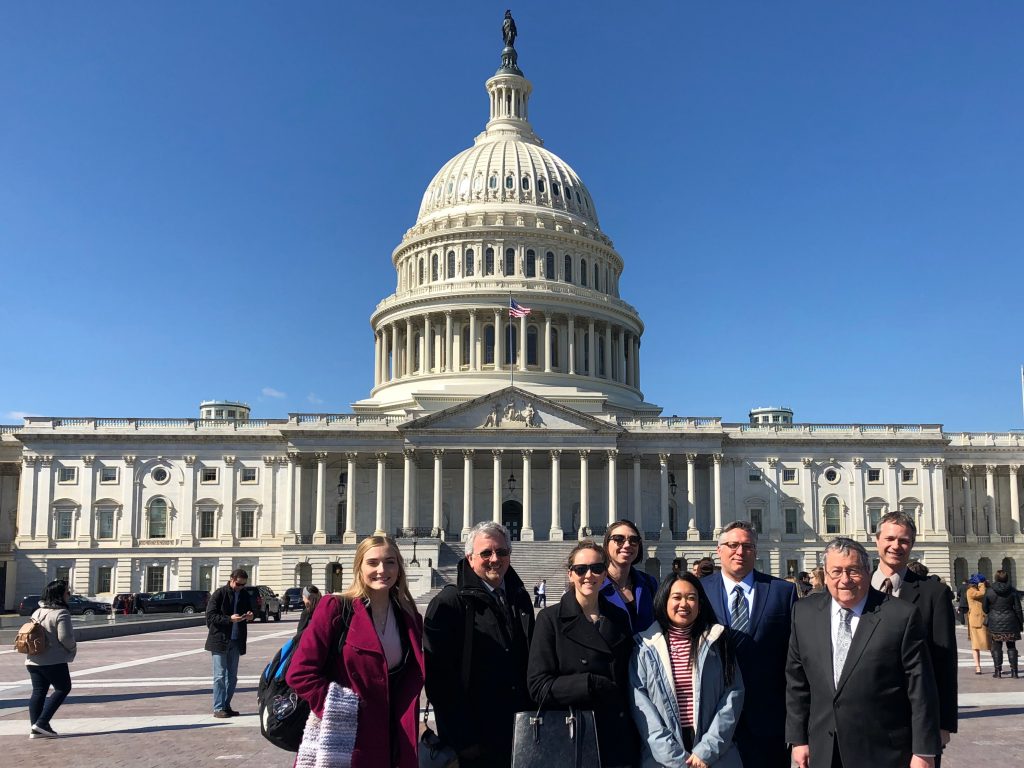A bipartisan budget agreement reached in the U.S. Congress will renew and strengthen the federal Open Textbook Pilot Grant Program with $7 million in funding for Fiscal Year 2020—a $2 million increase over previous years. Supported by advocates of higher education affordability, the renewal of this program for a third year is a resounding endorsement of the positive benefits that open textbooks can achieve for students. The funding is included in the Further Consolidated Appropriations Act, 2020, part of a $1.37 trillion budget package that Congress is expected to approve this week.
The Open Textbook Pilot offers grants to colleges and universities to implement programs that reduce the cost of textbooks through expanding the use of open educational resources—textbooks and other materials that are free for people everywhere to use and repurpose. The Fiscal Year 2020 renewal of the Open Textbook Pilot:
- Provides $7 million for grants to institutions of higher education to be awarded by December 31, 2020.
- Directs the Department of Education to follow notice and comment procedures and to offer at least 60 days to submit applications.
- Ensures that all open textbooks and other materials created under the grants are openly licensed and shared with the public.
- Specifies that there should be a “significant” number of grants to ensure that multiple projects are funded.
The Open Textbook Pilot was first created by Congress with a $5 million appropriation in Fiscal Year 2018. Implemented under the Department of Education’s Fund for the Improvement of Postsecondary Education (FIPSE) program, the first round of funding was awarded to LibreTexts. Following renewal with another $5 million for Fiscal Year 2019, the Department awarded grants to Chippewa Valley Technical College and Arizona State University. These three projects are estimated to save students at least $30 million over the next five years—triple the amount awarded in grants—and the benefits are likely to extend far beyond, since open textbooks are freely shared so that teachers and learners everywhere can access, read, and improve upon the materials.

SPARC would like to extend our thanks to the members of Congress who championed this funding, most especially Sen. Dick Durbin (D-IL), who met with us personally in March. We also thank Rep. Joe Neguse (D-CO), Sen. Angus King (I-ME), Sen. Kyrsten Sinema (D-AZ), and Sen. Tina Smith (D-MN) for being champions for open textbooks, and we thank appropriators Rep. Rosa DeLauro (D-CT), Sen. Roy Blunt (R-MO), and Sen. Patty Murray (D-WA). We are also proud to have worked alongside our partners at U.S. PIRG and their student chapters across the country.
The timeline for awarding the new funds will become clearer in the New Year. The first step is typically a notice inviting public comments, which is an important opportunity for members of the open education community to provide input. SPARC will be tracking the process closely, and will keep our policy page up to date with the latest.
In the meantime, we invite everyone to join us in celebrating holiday cheer and the benefits that the Open Textbook Pilot will continue to bring for students.